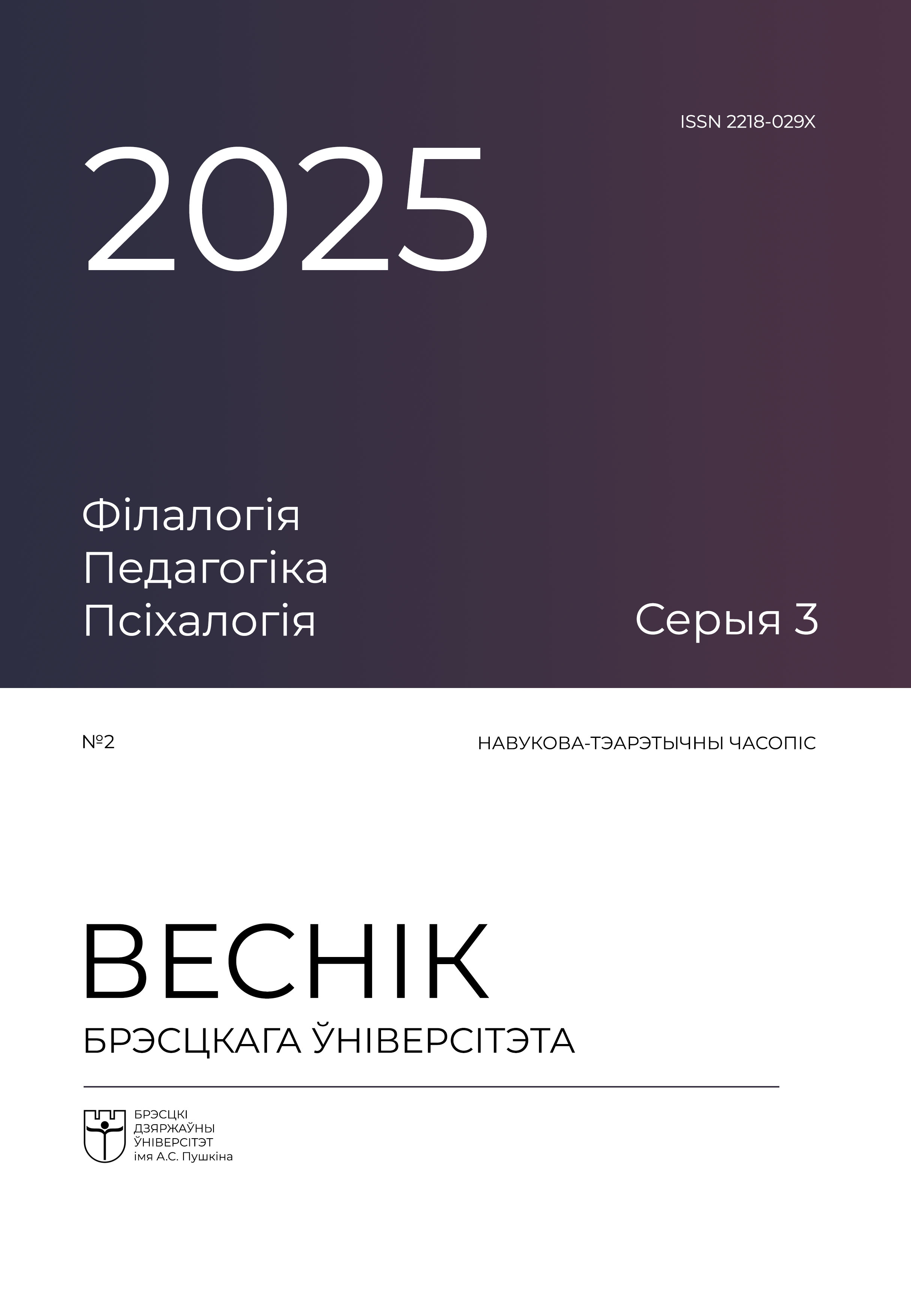RELATIONSHIP BETWEEN PARENT-CHILD CONFLICT RESOLUTION TACTICS AT DIFFERENT AGE PERIODS
Main Article Content
Abstract
The study discussed the relationship between parent-child conflict resolution tactics at different ages. A revised version of the methodology «Parent-Child Conflict Tactics Scale» (CTSPC) was used. The subjects of the study consisted of 307 Chinese and Belarusian students aged 19–29 years. It was found that there is a correlation between parent-child conflict resolution tactics at different age periods. It was found that there is a correlation between fatherly and motherly parent-child conflict resolution tactics in different age periods. It has been revealed that in Chinese families, all parent-child conflict resolution tactics (both on the part of the father and on the part of the mother) are consistent, regardless of the age of the child, and in Belarusian families only tactics are discipline, psychological aggression and the use of corporal punishment. The variability of behavior in a conflict situation with a child of one parent affects the variability of behavior of the other parent. In Chinese families, this variability is higher than in Belarusian families, regardless of the age of the child. Consistency of behavior in conflict situations with children at different age periods is higher in Chinese families than in Belarusian families.
Article Details
References
1. Гуслова, М. Н. Организация и содержание работы по социальной защите женщин, детей, семьи : учеб. пособие для нач. проф. образования / М. Н. Гуслова. – М. : Академия, 2010. – 272 с.
2. Фурманов, И. А. Дисциплинирование ребенка: тактики разрешения родительско-детского конфликта / И. А. Фурманов // Психологический журнал. – 2008. – Т. 20, № 4. – С. 74–81.
3. 大学生10岁前心理攻击和体罚对焦虑及健康危险行为的影响 / 文静 鞠 [及 其他.] // 中国学校卫生. = Влияние психологической агрессии и телесных наказаний на тревожность и поведение, связанное с риском для здоровья, у учащихся в период до 10-летнего возраста / Цзю Вэньцзин [и др.] // Школьное здравоохранение в Китае. – 2021. – Т.42, № 5. – С. 731–732.
4. 毕丹. 大学生亲子冲突的一般特点研究 : 硕士论文. 发展心理学 / 毕丹; 东北师范大学. – Changchun, 2009. – 20 p. = Би Дань. Исследование общих характеристик родительско-детского конфликта среди студентов : автореф. магистер. дис. / Би Дань ; Северо-восточный педагогический университет. – Чанчунь, 2009. – 20 c.
5. Беларусь: структура семьи, семейные отношения, репродуктивное поведение / М. Ю. Акулова [и др.] ; ред. Т. Кучера. – Минск : Белсэнс, 2018. – URL: https://belarus.unfpa.org/sites/default/files/pub-pdf/Digest%20GGS%20_ru.pdf (дата обращения: 29.12.2024).
6. Фурманов, И. А. Согласованность тактик разрешения родительско-детского конфликта при дисциплинировании ребенка / И. А. Фурманов // Психологический журнал. – 2009. – Т. 23, № 3. – С. 76–82.
7. Чжэньлань Ван. Возрастные различия тактики разрешения родительско-детского конфликта в белорусских и китайских семьях / Чжэньлань Ван // Материалы Междунар. науч.-практ. конф., посвящ. Всемирному дню социальной справедливости. – Днепропетровск, 2014. – С. 145–148.
8. Фурманов, И. А. Агрессия и насилие: диагностика, профилактика и коррекция / И. А. Фурманов. – СПб. : Речь, 2007. – 480 с.
9. Chan, K. L. Study on child abuse and spouse battering: Report on findings of household survey (A Consultancy Study Commissioned by the SWD of the HKSAR) / K. L. Chan. – Hong Kong : Uni-versity of Hong Kong, Department of Social Work and Social Administration, 2005. – 132 р.
